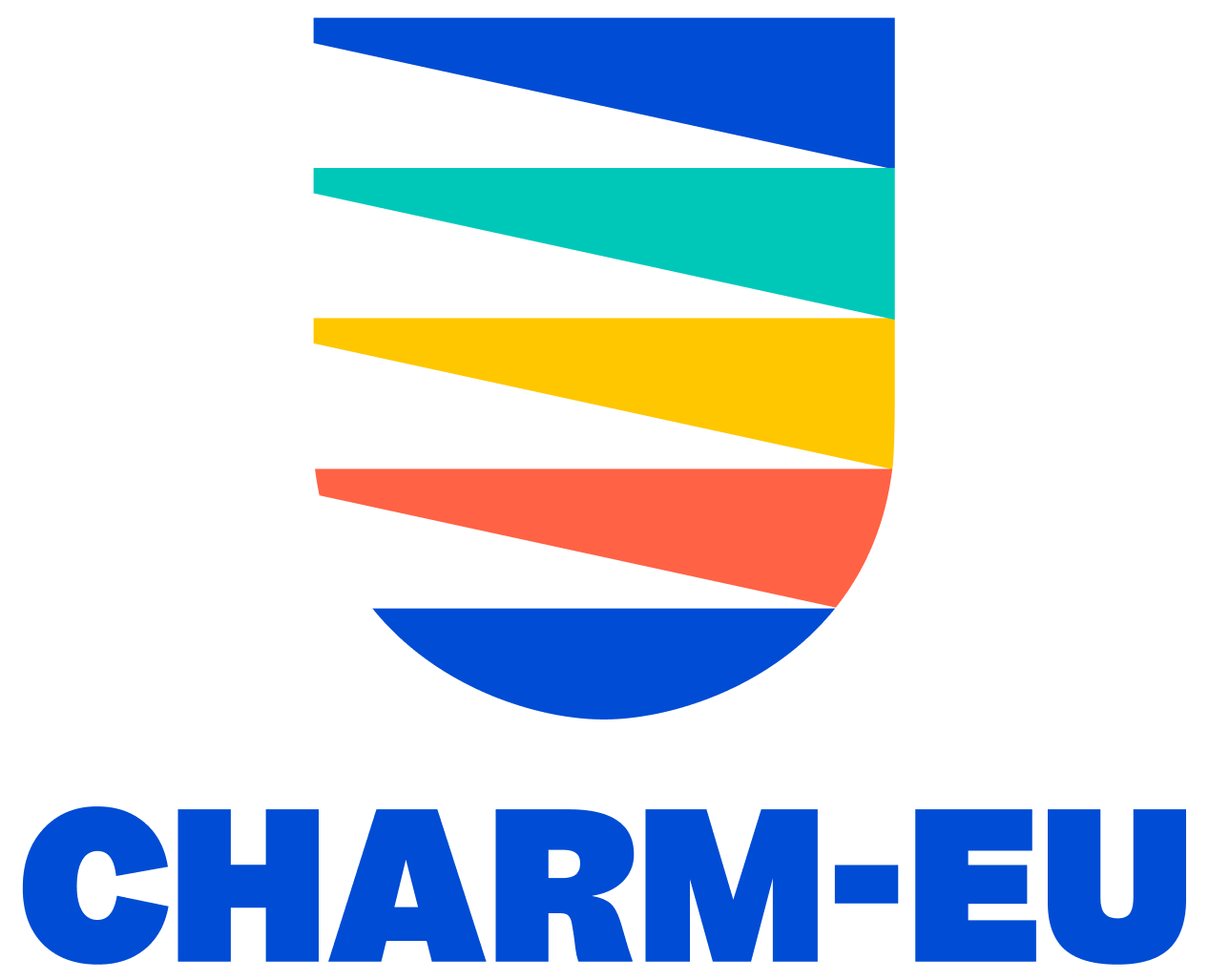Blended Intensive Programmes (BIPs)
The launch of Blended Intensive Programmes (BIPs) under CHARM-EU aims to foster innovation, inclusivity, and transdisciplinary collaboration, while expanding access to international mobility and creating opportunities for underrepresented student groups to benefit from these experiences. Erasmus+ Blended Intensive Programmes (BIPs) are short, intensive programs organized by a minimum of three European universities from three different Erasmus program member countries. These programs combine short stays abroad (between 5 and 30 days) for students and/or staff with a mandatory virtual component. This virtual part brings participants together online to work collectively and simultaneously on specific tasks that are integrated into the BIP and count towards the overall learning outcomes.
From a strategic, institutional, and academic perspective, BIPs combine international mobility with innovative teaching methods, presenting an opportunity for modernization and a commitment to quality in academic programs. Additionally, within the academic offerings of higher education institutions, they clearly represent added value. For participants, BIPs provide an experience of international mobility and innovative teaching. This is true even for members of the coordinating university or the host institution of the international mobility activities. Although these members do not partake in international mobility, they still participate in an intercultural, online training activity and the international in-person meeting at the institution, contributing to internationalization at home.
To prepare for the on-site mobility component, students first engage in hybrid activities, which include selecting a real-life transdisciplinary group challenge, conducting a desktop study, participating in team-building exercises, and developing an initial plan to solve the challenge using a challenge-based learning approach. This preparatory work equips them with the necessary knowledge and skills to tackle the challenges they will face during the on-site component. During the on-site component, students are organised into diverse and interdisciplinary teams to address local challenges related to promoting sustainability while considering the economic and social impact. They will have the opportunity to connect with local stakeholders and learn from international peers and experts.
Stay tuned and check back here for upcoming BIPS within CHARM-EU.
“My student mobility gave me invaluable experience in both social and academic purposes. My sole option was to try speaking as much french as possible, hence my language improved drastically during my exchange period.”
Lucas Wrede

“CHARM-EU, and especially the teachers, have provided me with a wider range of pedagogical tools that are well adapted to the needs of each student, whether cultural or cognitive“
Valérie Borrell
- Teacher of the Master’s degree
- CHARM-EU & University of Montpellier

“I’ve learned a lot beyond science, including international communication and the importance of speaking up when things aren’t right”.
Daan
- Elective Module Student
- CHARM-EU
“CHARM-EU enables students to pursue a highly personalised and ambitious learning journey. A key innovation of the programme is the integration of traineeship mobility to extra-academic partners, providing students with invaluable international professional experiences that enhance the overall value of their education”
Luca Alexa Erdei
- International Coordinator of CHARM-EU Mobility Work Package

